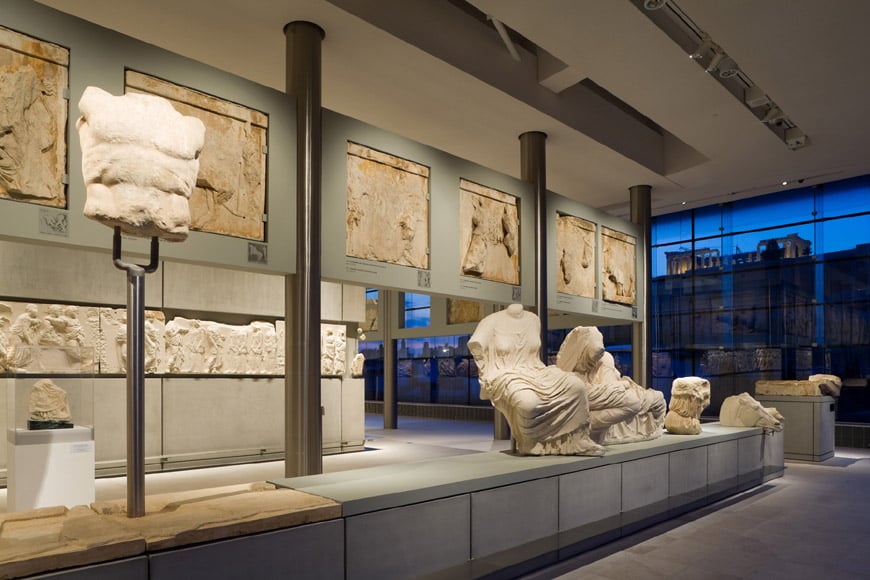Art
Syriza gives up legal case for Elgin’s Marbles
The Greek culture minister says there’s slim chance of winning a legal dispute to return the nation’s artifacts from London. But diplomatic options may yet stand a chance.

Greece has abandoned legal action for the repatriation of Elgin’s Marbles from the British Museum, “because,” Culture Minister Aristides Baltas admitted in a press conference this week, “we are at risk of losing the case.”
The dispute is well known: The friezes carved by Phidias in the fifth century BC — masterpieces of classical art — have been kept since 1816 in London, where they were transferred after a controversial Ottoman dispatch authorizing the British diplomat Lord Elgin to remove them from the temple of the goddess Athena on the Acropolis. The removal was a subject of controversy even at the time and continues to stir passions around the world.
When questioned by deputies during a session of the Parliamentary Committee for Education, Baltas said the government is not willing to continue legal action because the case is likely to be resolved unfavorably in court.
The committee had met to discuss a European Council directive on the return of cultural objects unlawfully removed from the territory of a member state. The Syriza party minister also said lawyer Amal Clooney and the law firm Doughty Street Chambers in London, which had consulted with Athens on ways to coerce the British Museum to return the marbles, have been paid and dismissed.
In the fall of 2014, the wife of Hollywood star George Clooney went to Greece to meet with then Prime Minister Antonis Samaras. Her visit to the Acropolis Museum aroused enthusiasm and the false hope that a glamorous face could boost the cause.
Upon hearing news that the government was dropping the case, former Culture Minister Costas Tasoulas accused Baltas of defeatism and criticized the Tsipras government’s decision.
The criticism is fair. On the eve of elections last year, both Syriza and the Panhellenic Socialist Movement used the marbles in its political message, relying on the Greek sense of identity in calling the frieze transport a theft for which justice has been due since independence.
The rhetoric during the election campaign — and fueled by Britain’s loan to the Hermitage Museum in St. Petersburg of one of the statues to celebrate the latter’s 250th anniversary — is actually far from sincere. Passionate appeals by Melina Mercouri, the late Minister of Culture after the fall of the military dictatorship, affected the same nationalist spirit.
Tsipras’s new diplomatic tack holds the only real possibility of getting the friezes back. As il manifesto argued in January (in Italian), any return of the Elgin Marbles to Athens must pass through a dialogue between European countries. Considering the sad events of the debt crisis and the dreaded Greek exit from the European Union, the marbles present an opportunity to bring to international attention the shared cultural horizon that is often talked about but not fundamentally understood.
To recognize (and restore) to Greece its value to Western civilization would fill a void that is not only marked by stone absences but also regards to the future of Europe. As long as Greek shores are open to those seeking asylum, then Greece’s values and universal ideas are still the same as they’ve always been — the very values invoked by supporters of the cause to repatriate the marbles. Art can never be separated from humanity, to whom it is addressed.
Originally published at http://ilmanifesto.info/syriza-getta-la-spugna-legale-sui-marmi-dellacropoli/ on 2015-12-11
